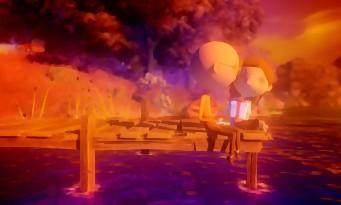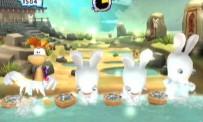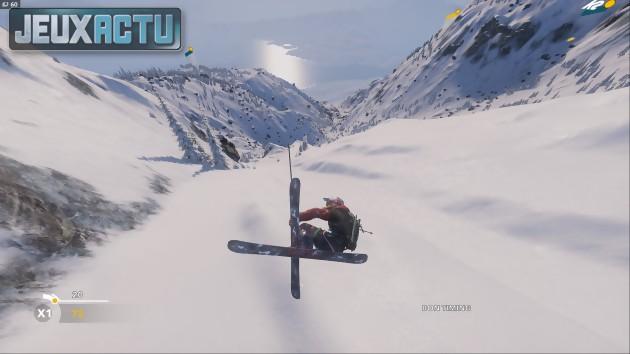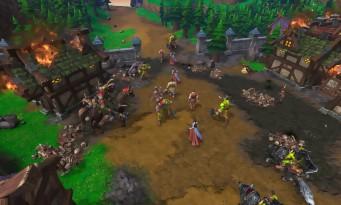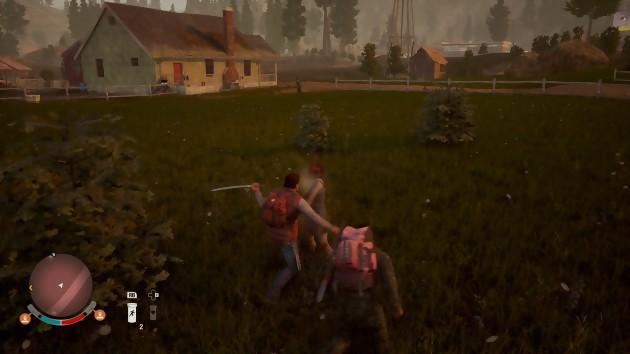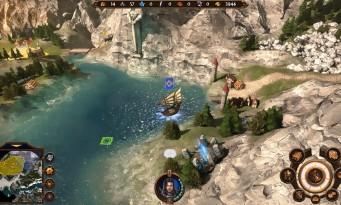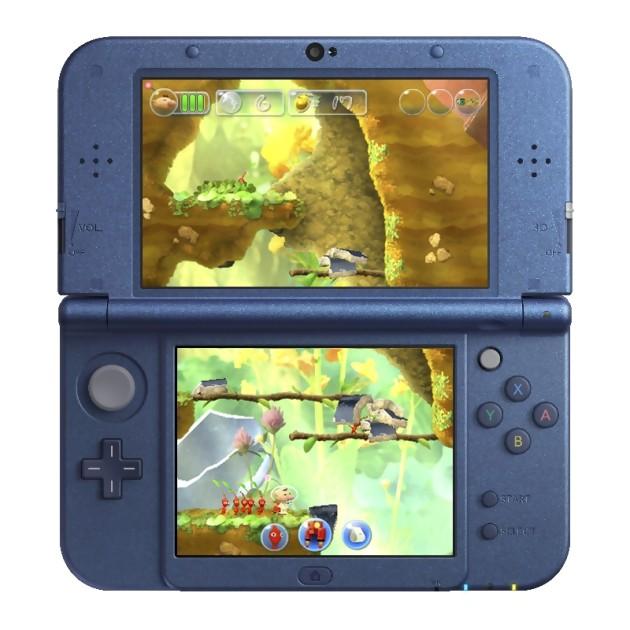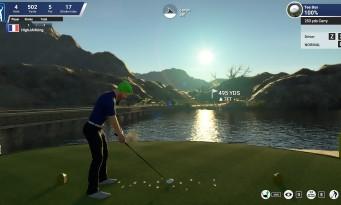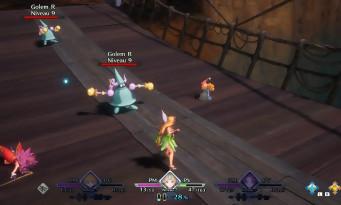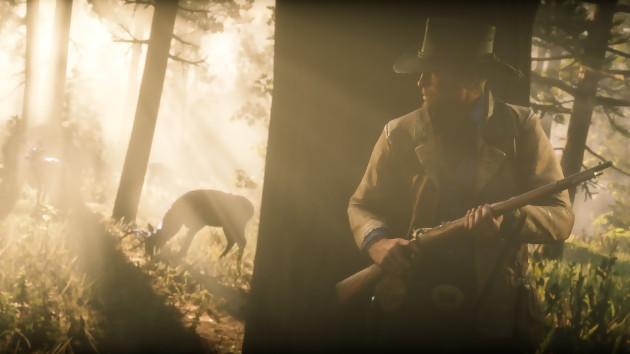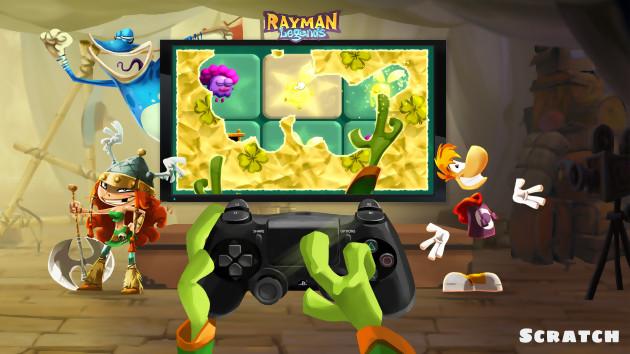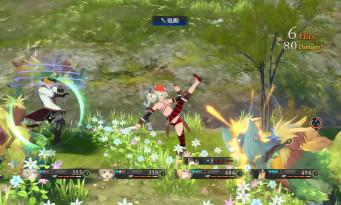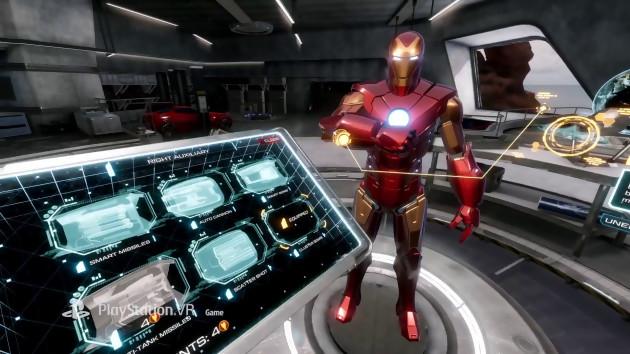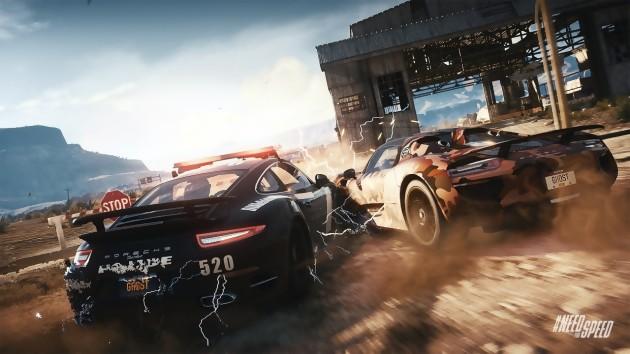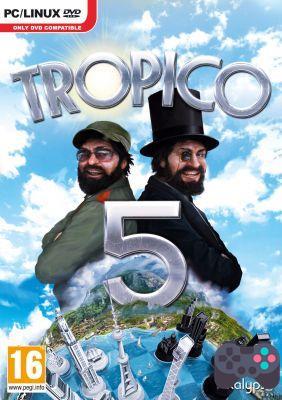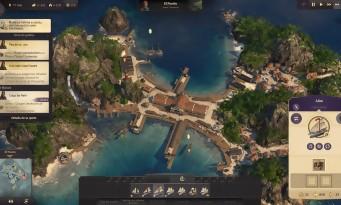 How to best enjoy an Anno? For many, it will be in sandbox mode. But some will prefer to follow the scripted campaign. Still others will favor the four-player multiplayer mode. Anno 1800 offers all this, and we are even promised the arrival in the near future of an additional and free mode dedicated to cooperation. The watchword therefore seems to leave maximum freedom to the players, who can also personalize each game through around twenty important parameters (size of the world, starting sum, fertility of the islands, number of rivals, etc. .). And don't panic, you don't have to be permanently connected to enjoy the single-player campaign. The latter puts us in the shoes of a man responsible for washing the honor of his late father, wrongly accused of having sold an island belonging to the queen to rebels. To do this, he will naturally have to develop a real empire from an almost virgin island. The narration is divided into four chapters which do not hesitate to display small cinematic scenes at each important stage of the scenario. We can then enjoy rather nicely animated portraits and fully dubbed dialogues. But it is during the game itself that the graphics engine impresses the most. It is able to display hundreds of buildings without flinching, and offers a very impressive level of detail. Zoom into a school, and you'll see the kids playing in the playground. Get up close to a carnival parade and you can watch musicians in action, an acrobat on stilts and a cyclist on a high-bi. It's a feast for the eyes, and this kind of refinement is not insignificant in a management game which, by nature, can reserve some downtime despite the possibility of speeding up time. However, you will hardly have the opportunity to stroll, because there are a lot of things to manage in this new Anno.
How to best enjoy an Anno? For many, it will be in sandbox mode. But some will prefer to follow the scripted campaign. Still others will favor the four-player multiplayer mode. Anno 1800 offers all this, and we are even promised the arrival in the near future of an additional and free mode dedicated to cooperation. The watchword therefore seems to leave maximum freedom to the players, who can also personalize each game through around twenty important parameters (size of the world, starting sum, fertility of the islands, number of rivals, etc. .). And don't panic, you don't have to be permanently connected to enjoy the single-player campaign. The latter puts us in the shoes of a man responsible for washing the honor of his late father, wrongly accused of having sold an island belonging to the queen to rebels. To do this, he will naturally have to develop a real empire from an almost virgin island. The narration is divided into four chapters which do not hesitate to display small cinematic scenes at each important stage of the scenario. We can then enjoy rather nicely animated portraits and fully dubbed dialogues. But it is during the game itself that the graphics engine impresses the most. It is able to display hundreds of buildings without flinching, and offers a very impressive level of detail. Zoom into a school, and you'll see the kids playing in the playground. Get up close to a carnival parade and you can watch musicians in action, an acrobat on stilts and a cyclist on a high-bi. It's a feast for the eyes, and this kind of refinement is not insignificant in a management game which, by nature, can reserve some downtime despite the possibility of speeding up time. However, you will hardly have the opportunity to stroll, because there are a lot of things to manage in this new Anno.
YEAR, CORN OUI!
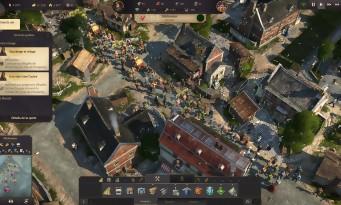 The basic gameplay loop naturally consists of placing a few roads and buildings in order to gradually transform a peaceful countryside into a crowded city. Particular emphasis is placed on the production chains, which make it possible to manufacture various goods necessary for the satisfaction of the people. Moreover, we can note a clear separation between needs and happiness. Bringing enough goods belonging to the first category is enough to evolve a given dwelling, the inhabitants being able to successively reach the status of farmers, workers, craftsmen, engineers and investors. But it is important to also respond to requests for comfort, because the happiness of your flock depends on their number and therefore the amount of tax collected. It is also essential not to evolve all your inhabitants simultaneously and to keep a sufficient number of them in each category, even if it means constantly recreating basic dwellings. Indeed, the game now makes the permanent distinction between the categories, each building employing only a given type of worker. Regulars of the series will also notice the importance given to warehouses, which must be disseminated as best as possible on the map, so that each industry is near one of them, and which can be equipped with loading docks. to serve as many production lines as possible simultaneously. And of course, not all islands have the same resources and fertility, so you have to quickly think about conquering new lands, establishing trade routes, and using diplomacy to forge alliances, trade rights, peace treaties and declarations of war. After a while, we will even end up feeling cramped on the main map and juggling other maps, especially that of the new world.
The basic gameplay loop naturally consists of placing a few roads and buildings in order to gradually transform a peaceful countryside into a crowded city. Particular emphasis is placed on the production chains, which make it possible to manufacture various goods necessary for the satisfaction of the people. Moreover, we can note a clear separation between needs and happiness. Bringing enough goods belonging to the first category is enough to evolve a given dwelling, the inhabitants being able to successively reach the status of farmers, workers, craftsmen, engineers and investors. But it is important to also respond to requests for comfort, because the happiness of your flock depends on their number and therefore the amount of tax collected. It is also essential not to evolve all your inhabitants simultaneously and to keep a sufficient number of them in each category, even if it means constantly recreating basic dwellings. Indeed, the game now makes the permanent distinction between the categories, each building employing only a given type of worker. Regulars of the series will also notice the importance given to warehouses, which must be disseminated as best as possible on the map, so that each industry is near one of them, and which can be equipped with loading docks. to serve as many production lines as possible simultaneously. And of course, not all islands have the same resources and fertility, so you have to quickly think about conquering new lands, establishing trade routes, and using diplomacy to forge alliances, trade rights, peace treaties and declarations of war. After a while, we will even end up feeling cramped on the main map and juggling other maps, especially that of the new world.
NEW WORLD AND NEW FEATURES
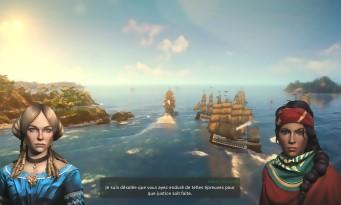 If the game offers a very European aesthetic, it knows how to vary the pleasure by offering the player to also settle in South America. The change is both aesthetic and functional. Instead of growing wheat, raising sheep and making sausages and beer, we find ourselves producing bananas, coffee, sugar cane, rum, tortillas and cotton wool ponchos. alpacas. The game then takes on the air of Tropico, minus the dictatorship. If this variation is necessarily nice, it is not the only touch of novelty brought by Anno 1800. First of all, the context of the industrial revolution gives the opportunity to manage buildings never seen in the series, and even to play with electricity or oil. In addition, citizens regularly offer us very simple little quests (accept a gift, find stray dogs on the map, take a photo of a particular building or event, etc.), and other explorers sometimes do the same (destroy a ship, escort another, or deliver such and such goods). Rewards take the form of items or characters, which can provide different bonuses when placed in the correct building. About the buildings, note that it is now possible to "pre-build" them without spending any resources, an ethereal silhouette then taking the place of the future construction. This allows in particular to better plan the general architecture of our city. Another novelty: the regular publication of the newspaper "Les Chroniques d'Anno", which automatically puts the latest significant events on the front page, which can have a positive or negative influence on consumption and the happiness of the inhabitants. Fortunately, who says mass media says propaganda, and it is possible to modify the articles put forward in order to benefit only from bonuses. Be careful, however, not to attract the wrath of the most honest rivals.
If the game offers a very European aesthetic, it knows how to vary the pleasure by offering the player to also settle in South America. The change is both aesthetic and functional. Instead of growing wheat, raising sheep and making sausages and beer, we find ourselves producing bananas, coffee, sugar cane, rum, tortillas and cotton wool ponchos. alpacas. The game then takes on the air of Tropico, minus the dictatorship. If this variation is necessarily nice, it is not the only touch of novelty brought by Anno 1800. First of all, the context of the industrial revolution gives the opportunity to manage buildings never seen in the series, and even to play with electricity or oil. In addition, citizens regularly offer us very simple little quests (accept a gift, find stray dogs on the map, take a photo of a particular building or event, etc.), and other explorers sometimes do the same (destroy a ship, escort another, or deliver such and such goods). Rewards take the form of items or characters, which can provide different bonuses when placed in the correct building. About the buildings, note that it is now possible to "pre-build" them without spending any resources, an ethereal silhouette then taking the place of the future construction. This allows in particular to better plan the general architecture of our city. Another novelty: the regular publication of the newspaper "Les Chroniques d'Anno", which automatically puts the latest significant events on the front page, which can have a positive or negative influence on consumption and the happiness of the inhabitants. Fortunately, who says mass media says propaganda, and it is possible to modify the articles put forward in order to benefit only from bonuses. Be careful, however, not to attract the wrath of the most honest rivals.
 The game also offers us expeditions, which requisition one of our ships and work roughly as multiple-choice text adventures. It is quite possible to fail and leave your feathers there, but also to come back with a nice reward, for example in the form of a wild animal or an archaeological relic. We will then quickly place the first in a zoo and the second in a museum, these two types of cultural buildings making a remarkable appearance in the saga. It must be said that Anno 1800 places particular emphasis on tourism, and it will therefore be in our best interest to maximize the city's attractiveness score (calculated from the culture, nature and festivities scores on the one hand, and pollution, vulgarity and instability of the other), in order to take advantage of significant cash inflows. The game therefore innovates by small touches, without ever upsetting its basic concept, which is devilishly effective. Moreover, there are some typical defects of the series, such as naval combat not very exciting. The ground battles meanwhile fell squarely on the sidelines because, by their own admission, the developers failed to achieve anything satisfying. We can also regret the few levers that the player has on the monetary aspect. For example, it is impossible to pay taxes finely or to borrow a sum of money from a bank. On the side of technical problems, we will note a form of latency during certain clicks, which do not seem to be taken into account correctly, as well as quests which take a little time to validate automatically, or are not sufficiently explicit on the way to validate them. We can also observe tooltips that partially go out of the screen when the hovered element is too low. These small faults will certainly be corrected in a future patch and, in any case, weigh little against the very good overall performance of the game!
The game also offers us expeditions, which requisition one of our ships and work roughly as multiple-choice text adventures. It is quite possible to fail and leave your feathers there, but also to come back with a nice reward, for example in the form of a wild animal or an archaeological relic. We will then quickly place the first in a zoo and the second in a museum, these two types of cultural buildings making a remarkable appearance in the saga. It must be said that Anno 1800 places particular emphasis on tourism, and it will therefore be in our best interest to maximize the city's attractiveness score (calculated from the culture, nature and festivities scores on the one hand, and pollution, vulgarity and instability of the other), in order to take advantage of significant cash inflows. The game therefore innovates by small touches, without ever upsetting its basic concept, which is devilishly effective. Moreover, there are some typical defects of the series, such as naval combat not very exciting. The ground battles meanwhile fell squarely on the sidelines because, by their own admission, the developers failed to achieve anything satisfying. We can also regret the few levers that the player has on the monetary aspect. For example, it is impossible to pay taxes finely or to borrow a sum of money from a bank. On the side of technical problems, we will note a form of latency during certain clicks, which do not seem to be taken into account correctly, as well as quests which take a little time to validate automatically, or are not sufficiently explicit on the way to validate them. We can also observe tooltips that partially go out of the screen when the hovered element is too low. These small faults will certainly be corrected in a future patch and, in any case, weigh little against the very good overall performance of the game!





